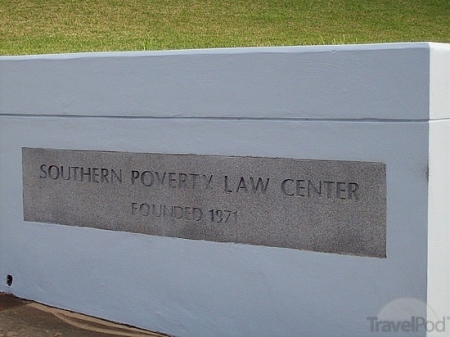Court Rules Against Christian Group in GuideStar 'Hate Group' Lawsuit

A conservative Christian legal group's lawsuit against leading nonprofit watchdog GuideStar for using the Southern Poverty Law Center's "hate group" label on its profile page and the profile pages of other social conservative organizations has been dismissed by a federal judge in Virginia.
Judge Raymond A. Jackson of the U.S. District Court for the Eastern District of Virginia threw out the Florida-based Liberty Counsel's lawsuit against GuideStar, which was filed after the leading nonprofit information service began last year including disclaimers at the top of the online profiles of a number of social conservative nonprofits indicating that they had been designated a "hate" group by the far-left SPLC.
The decision, which came last week, comes after GuideStar filed a motion to dismiss Liberty Counsel's case on the grounds that the lawsuit's claim — that such action taken by GuideStar violates the Lanham Act — "fails as a matter of law."
The Lanham Act is a federal trademark statute that prohibits things such as trademark infringement and false advertising.
Conservatives have long claimed that SPLC's "hate group" label is falsely applied to conservative organizations who hold opposite views from SPLC on political issues like abortion, immigration, marriage, and radical Islam.
The judge reasoned that because the Liberty Counsel profile page does not solicit funds for GuideStar, it can't be considered a commercial use or a violation of the Lanham Act.
Additionally, the judge argues that GuideStar also "has an expressive right to comment on social issues under the First Amendment."
"The Court finds that Plaintiff has not sufficiently pled a claim for a violation of the Lanham Act. Plaintiff did not sufficiently plead facts to satisfy the first element of a Lanham Act violation because the Court determines that Defendant's statement is not commercial speech," a court document reads. "The Court finds that Defendant's use of SPLC's notation is not commercial speech because the notation does not fall under the type of speech that violates the Lanham Act. Defendant's review of Plaintiffs organization would fall under the laws of the First Amendment, not that of the Lanham Act."
The same SPLC "hate group" disclaimer that was placed on Liberty Counsel's GuideStar profile was also placed on the profiles of as many as 45 other conservative organizations, such as the D.C.-based Family Research Council and the Alliance Defending Freedom.
Although GuideStar removed the disclaimers from the top of the groups' profiles last year after receiving much criticism and alleged threats to staffers, it has maintained that it will make the SPLC hate group designations available upon request.

"Despite GuideStar's admission that it was seeking to influence the purchasing decisions of its constituents and the general public, the court without much analysis ruled such a goal is not commercial in nature," Liberty Counsel founder Mat Staver said in a statement. "The GuideStar publication was designed to inflict financial harm because its purpose was to affect the financial transactions of the public. The SPLC false label has become discredited and it has proven to be dangerous as history has shown with the [2012] attack against Family Research Council. This false label applied to non-violent and law-abiding groups must stop."
The Liberty Counsel is weighing whether or not it wants to appeal the judge's decision to dismiss.
GuideStar CEO Jacob Herald said in an interview last year that the organization began referring to the SPLC "hate group" labels in response to the rise in "hateful rhetoric" within the United States, according to the Associated Press.





















